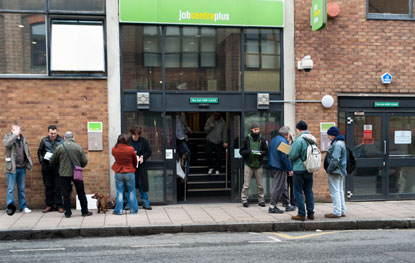By Richard Johnstone | 20 October 2011
Local government has suffered the largest job losses in the first year of the public spending cuts, PricewaterhouseCoopers has found.
 The consultants’ report,
released today on the anniversary of the Comprehensive Spending Review, says that
public sector job cuts have
been much larger and faster
than anticipated.
The consultants’ report,
released today on the anniversary of the Comprehensive Spending Review, says that
public sector job cuts have
been much larger and faster
than anticipated.Around 240,000 jobs have been lost since the cuts began to take effect, according to The Spending Review: one year on.
This is more than half the total of 400,000 public sector job losses that the Office for Budget Responsibility has estimated will have gone by 2015/16.
More than 145,000 jobs have gone in local government, compared with 66,000 in central government, including the NHS. Public corporations such as the BBC and the Post Office have lost around 29,000.
Chief economist John Hawksworth said: ‘This year has seen considerable turmoil in the world economy and in financial markets, leading to significantly slower UK growth than had been expected a year ago. This may have been amplified by public sector job cuts coming through much more quickly than projected, particularly in the English local authorities.’
However, he argued that the government’s tough fiscal stance had helped to keep the UK cost of borrowing very low. It had also left room for the Bank of England to announce another £75bn of additional quantitative easing to help support the economy, he added.
Paul Cleal, head of government and public sector at PwC, added that the jobs cuts had ‘sapped demand at a time when the economy is already relatively weak’.
He said: ‘After only one quarter of data for this financial year, the job losses in the public sector have already exceeded the OBR forecast for the whole of the 2011/12 financial year.’
However, he added that the total number of job cuts over the Spending Review period would not necessarily be that much greater than forecast as losses might be lower than projected in subsequent years.
Leading public sector trade union Unison said that the report was evidence that government cuts were ‘hitting hard and fast’.
General secretary Dave Prentis said: ‘Job cuts and insecurity are already piling misery on low-paid public sector workers, who are struggling to cope with record inflation, pay freezes and damaging changes to their pensions.
‘The government must take urgent action to stop the devastation of vital services and promote growth, or they risk throwing the country into a double-dip recession.’





















